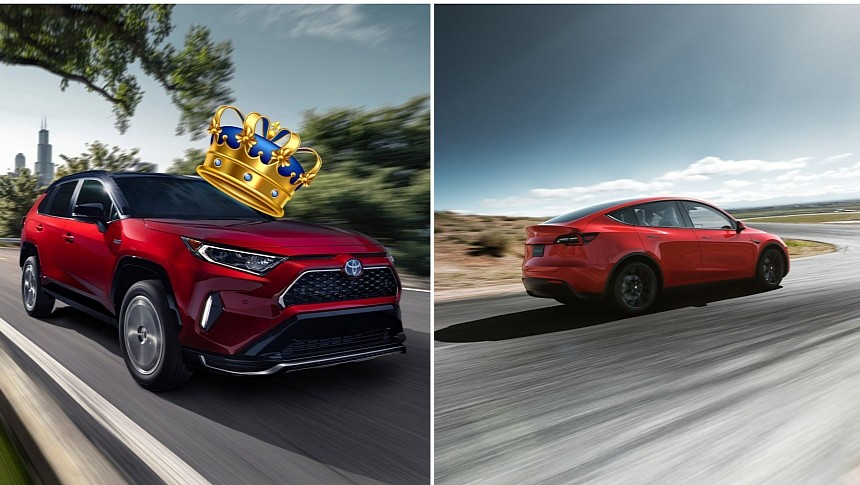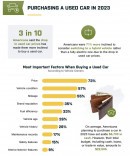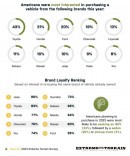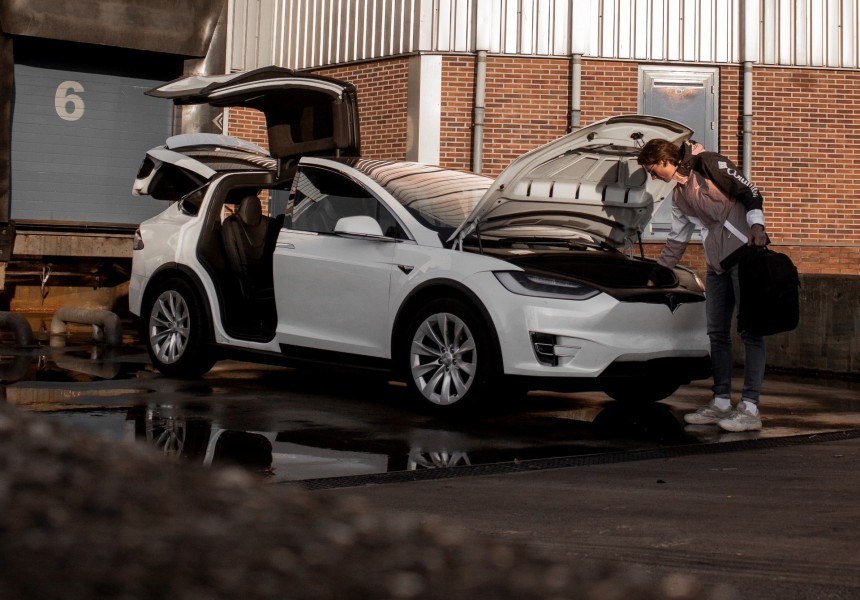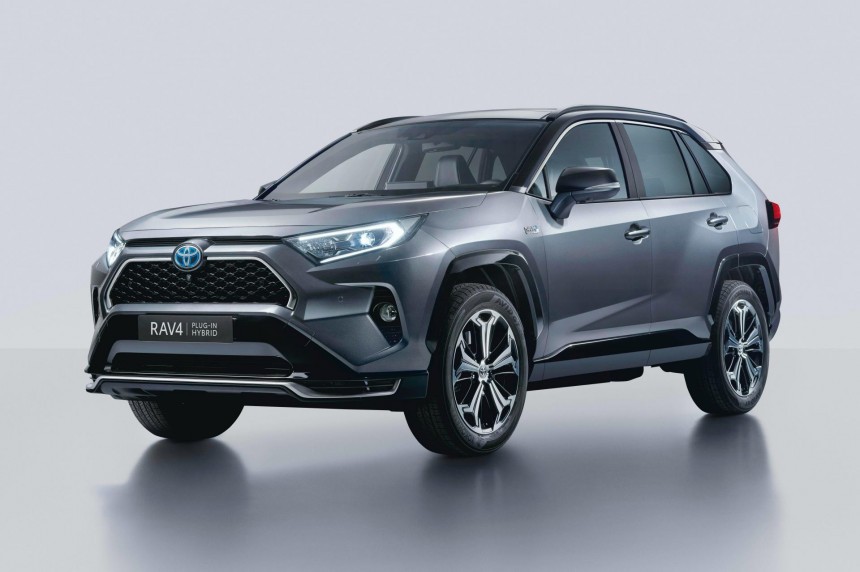If anyone knows one thing about the US, it is that almost anyone needs a driving license and a car. Public transportation is not very good, and commuting, taking the little ones to school, or visiting your store of choice can be complicated or nearly impossible without some wheels. Fortunately, used car prices are coming down. But that reveals something interesting – next to no one wants an all-electric vehicle (EV).
The last few months have kept Tesla under the spotlight because the Texas-based brand applied aggressive price cuts. At the peak of absurd MSRPs, we warned our readers that a shift would eventually come. Still, many were left disheartened by what the EV maker recently did.
Some, for example, wanted a new Tesla and tried to trade in their EVs. But found out that after just one year, the marque valued their units at almost half of what they paid. That's not something you want to see, especially if you took out a loan for the unit.
The downtrend started at the beginning of 2023. It continued until the beginning of September when the Model X became officially eligible for the EV tax credit – after a hefty $41,000 price drop over 13 months.
New cars were more expensive in 2022 because of supply chain struggles, parts shortages, and various geopolitical issues that forced companies to reduce supply. Consequently, they also increased prices so profit margins wouldn't suffer.
Subsequently, the used car market entered an inflationary period of its own because acquiring a new vehicle not only meant paying more than before but also waiting months to take delivery. Owners wanting to get rid of their wheels figured it out and acted by raising prices. Of course, brands like Carvana and Carmax did the same. But Tesla slashed prices without warning, which led to conflicting outcomes like a used Tesla Model Y costing more than a brand-new one.
And the used car market is following suit. Cox Automotive's Manheim report revealed that, on average, compact and midsize cars got cheaper by 13.2% and 12%, respectively. The same year-over-year analysis with August 2022 taken as a reference point showed that luxury vehicles sent to the secondary market also lost an extra 8.8% of their value.
The only used vehicles that are just scratching the surface with barely noticeable price cuts are pickup trucks – since August 2022 and until August 2023, these types of automobiles lost just 2.8% of their value. That's impressive! The data also reconfirms that America likes pickup trucks, and their owners are unwilling to let go of them as easily as other car buyers.
An Extreme Terrain survey uncovered what matters most to people looking for a second-hand car. They're looking at price, condition, mileage, brand reputation, and fuel efficiency. It may be weird that brand reputation comes before fuel efficiency in the surveyed people's preferences, but it makes sense when it's coupled with reliability. Some could be more inclined to buy a Toyota because they heard it's more dependable than other brands, for example.
The people's answers confirm that theory – Toyota, Honda, Ford, and Chevrolet are among the favorites. To buy their favorite used vehicle, Americans have put aside, on average, $6,700 in cash. That doesn't include trade-ins, loans, and the possibility to add more to that median sum.
The survey also revealed that only 3 in 10 Americans have recently given buying a used vehicle some extra thought. Most aren't yet ready to explore acquiring a car from the secondary market or a spanking-new one. That's not because people wouldn't like to get a slightly newer or more premium vehicle. It's due to living costs being at the highest levels in years. Currently, it doesn't make a whole lot of sense to get into debt for a depreciating asset.
All-electric vehicles still have a long way to go before they become everyone's favorites. Maybe that'll happen from 2025 onwards, after most automakers switch to Tesla's port and fast-charging will become easier.
Interestingly enough, the direct sales model championed by brands like Tesla, Rivian, Lucid, or Fisker has extended into the used car market – over 70% of the survey participants said they would like to buy online rather than in-person.
But what these brands haven't managed yet is to convince people that financing or leasing a used EV makes sense. For example, an inventory rear-wheel-drive Tesla Model 3 with 20,000 miles on the odo would require a monthly payment of $484 with a downpayment of $4,500.
But that's not all. Suppose you find a used plug-in hybrid (i.e., Hyundai Ioniq Plug-In) or all-electric car (i.e., Hyundai Kona EV) costing $25,000 or less. In that case, Uncle Sam gives you (terms and conditions apply!) $4,000 maximum as a tax credit.
To qualify, you must meet specific earning requirements, and the vehicle must be at least two years old, weigh less than 14,000 lb, be sold by a dealer, and have a battery of at least 7 kWh.
Finally, the same report that questioned 1,010 Americans reveals that nearly 90% of the surveyed Jeep owners want to stay with the brand despite the automaker selling some of America's least reliable vehicles.
We can't help but wonder at this point - will the sedan or the hatchback as we know them ever make a comeback?
Some, for example, wanted a new Tesla and tried to trade in their EVs. But found out that after just one year, the marque valued their units at almost half of what they paid. That's not something you want to see, especially if you took out a loan for the unit.
The downtrend started at the beginning of 2023. It continued until the beginning of September when the Model X became officially eligible for the EV tax credit – after a hefty $41,000 price drop over 13 months.
New cars were more expensive in 2022 because of supply chain struggles, parts shortages, and various geopolitical issues that forced companies to reduce supply. Consequently, they also increased prices so profit margins wouldn't suffer.
Back to how it used to be
But things have stabilized, and brands like Tesla championed the return to normalcy. Now, everyone's trying to figure out how to cut prices before the effects of the Federal Reserve's rate hikes are fully embedded into the economy, and without upsetting existing buyers like the Texas-based EV maker did.And the used car market is following suit. Cox Automotive's Manheim report revealed that, on average, compact and midsize cars got cheaper by 13.2% and 12%, respectively. The same year-over-year analysis with August 2022 taken as a reference point showed that luxury vehicles sent to the secondary market also lost an extra 8.8% of their value.
The only used vehicles that are just scratching the surface with barely noticeable price cuts are pickup trucks – since August 2022 and until August 2023, these types of automobiles lost just 2.8% of their value. That's impressive! The data also reconfirms that America likes pickup trucks, and their owners are unwilling to let go of them as easily as other car buyers.
The people's answers confirm that theory – Toyota, Honda, Ford, and Chevrolet are among the favorites. To buy their favorite used vehicle, Americans have put aside, on average, $6,700 in cash. That doesn't include trade-ins, loans, and the possibility to add more to that median sum.
The survey also revealed that only 3 in 10 Americans have recently given buying a used vehicle some extra thought. Most aren't yet ready to explore acquiring a car from the secondary market or a spanking-new one. That's not because people wouldn't like to get a slightly newer or more premium vehicle. It's due to living costs being at the highest levels in years. Currently, it doesn't make a whole lot of sense to get into debt for a depreciating asset.
Filling up with gas, not replenishing with electrons
The same research reveals that a little over 2 in 10 Americans would now consider a used hybrid SUV, whereas only 14% of the surveyed said they would give an EV a chance. Most of those (nearly 60%) who answered said they would finance a purchase from the secondary market.Interestingly enough, the direct sales model championed by brands like Tesla, Rivian, Lucid, or Fisker has extended into the used car market – over 70% of the survey participants said they would like to buy online rather than in-person.
But what these brands haven't managed yet is to convince people that financing or leasing a used EV makes sense. For example, an inventory rear-wheel-drive Tesla Model 3 with 20,000 miles on the odo would require a monthly payment of $484 with a downpayment of $4,500.
But that's not all. Suppose you find a used plug-in hybrid (i.e., Hyundai Ioniq Plug-In) or all-electric car (i.e., Hyundai Kona EV) costing $25,000 or less. In that case, Uncle Sam gives you (terms and conditions apply!) $4,000 maximum as a tax credit.
To qualify, you must meet specific earning requirements, and the vehicle must be at least two years old, weigh less than 14,000 lb, be sold by a dealer, and have a battery of at least 7 kWh.
Finally, the same report that questioned 1,010 Americans reveals that nearly 90% of the surveyed Jeep owners want to stay with the brand despite the automaker selling some of America's least reliable vehicles.
We can't help but wonder at this point - will the sedan or the hatchback as we know them ever make a comeback?
